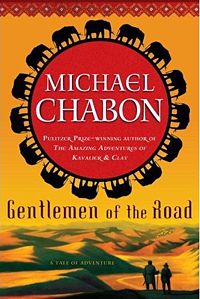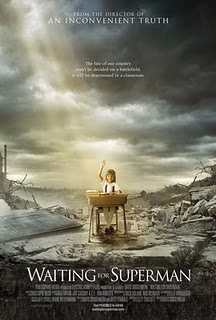On Sunday, the Washington Post Magazine published an article by Gene Weingarten - "Pearls before Breakfast." I've waited on commenting on the piece until a few days had passed because I wanted to think about the piece and feel free to give away a few of the conclusions.
Weingarten, who typically writes a humor column for the Post Magazine, decided to stage a deceptively simple experiment. He asked Joshua Bell, one of America's foremost violinists, to set up shop at the Washington DC metro L'enfant Plaza Station. Under the guise of anonymity, Bell, who you can usually see for $50 or so in a concert hall, then played a demanding program for the commuters. Weingarten's premise? See who, if anyone, stops and listens.
You can probably imagine the outcome - almost no one stopped. Bell ended up earning $32 and change in his violin case while playing on a Stradivarius that cost roughly $3.5 million.
The classical blogosphere immediately swarmed the story and it spread like wildfire over the internet. Weingarten has even remarked that he received more response to that story than to any other he's done. Kevin Drum, who writes the Political Animal for The Washington Monthly posted a snarky response that is still drawing comments three days later. Most people seem to object to the idea that our rush, rush, hurry, hurry society blinds us to moments of beauty and feel that the article speaks down to the vast majority of people who don't enjoy classical music. One of my favorite responses was that if Ringo Starr set up camp in L'enfant Station, he would surely get a crowd.
Perhaps. Perhaps not. But as someone who works in classical music and is used to the idea that although "classical" music represents a tiny fraction of music's market share it has a monolithic cultural position, I'm finding that most people are missing an important underlying point in their, yes, rush to judgment.
As I was driving into work yesterday afternoon I was listening to "Day to Day" on NPR and heard a re-broadcast of a piece written 26 years ago about the new-fangled Walkman. Reflecting on that piece it struck me that the most penetrating line in Weingarten's article is almost a throw-away. Commenting on a young boy who tugs at his mother's arms to investigate the music, Weingarten wrote: "The poet Billy Collins once laughingly observed that all babies are born with a knowledge of poetry, because the lub-dub of the mother's heart is in iambic meter. Then, Collins said, life slowly starts to choke the poetry out of us. It may be true with music, too."
It isn't so much that people were too busy to stop and listen to the music or that they don't appreciate classical music or that if Bell had played in the afternoon people would have felt free to pause and listen. Instead it is that we simply don't listen to music anymore. Music as background noise has become so ubiquitous that we no longer listen. I was in Home Depot one time with Sam soon after he started signing. I noticed him emphatically waving his arms, making the sign for music. For a moment I thought he was just trying out signs until I realized that Madonna was softly playing over the din of banging boards and clanging nails. Some market research had uncovered that Madonna makes us think of pointy metal things and therefore more likely to buy pointy metal things, or some other equally obscure equation, and so Home Depot piped her in. And yet here I was, a trained musician who couldn't study in college while listening to music and I didn't hear her. It took a child to notice. It took a child to listen.
Music accompanies our driving, our shopping, our movie and TV watching, our house cleaning, our exercising, but we so rarely really listen to it. Before recording technology, music was a special, prized artifact that princes and popes kept for themselves. Hearing it was a rare treat. Do I want to go back to that time? Not at all. I love that we all have access to any music we want any time of day. But I'm afraid that in the process of making music easily available we've also made music commonplace. The article jolted me, especially when it came during a time I was working on Cage's music, music that politely asks that we open ourselves to the music all around us. Children do that instinctively; as adults we lose that awareness. Maybe it's time we stopped hearing and started listening.
Self-doubt in the tech industry
2 years ago




2 comments:
Thus the religious difference between the holy and profane. As a dear friend once observed, we 1960s religious radicals who called for the religious to see God in the mundane won out. The result, in part, was what another friend disparagingly calls "Christian nightclub" music. In another part, it was the loss of the holy, the sense of separation that marks off the supernatural spaces from the mundane. In a third part, it was loss of worship and loss of the need to worship a God who is infinitely above all that we are--or can be. As we emphasized Christ's humanity, we lost sight of His divinity and in our minds had God join us at the level "a little lower than the angels." Thus we think that the age of miracles has passed; like the listeners in the L'Enfant station, we have become so inured to the miraculous that we've made it commonplace.
Pop
We truly have, but I see hopeful signs among my friends that a return to that sense of holiness and awe is desired and needed. That's why we have friends who walk labyrinth prayers and want fine art back in worship. We all seem to have a need for the miraculous that we aren't filling in our culture.
Post a Comment